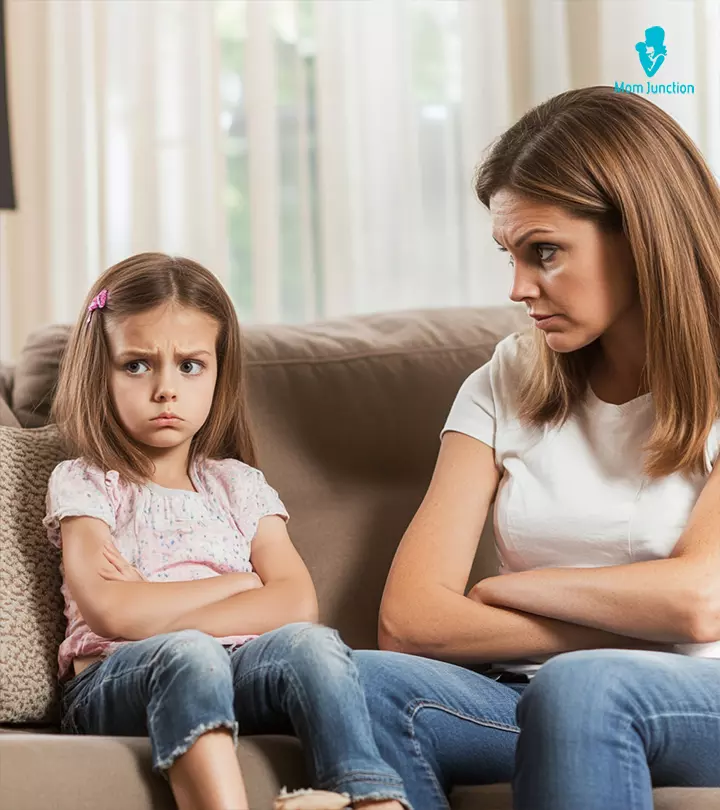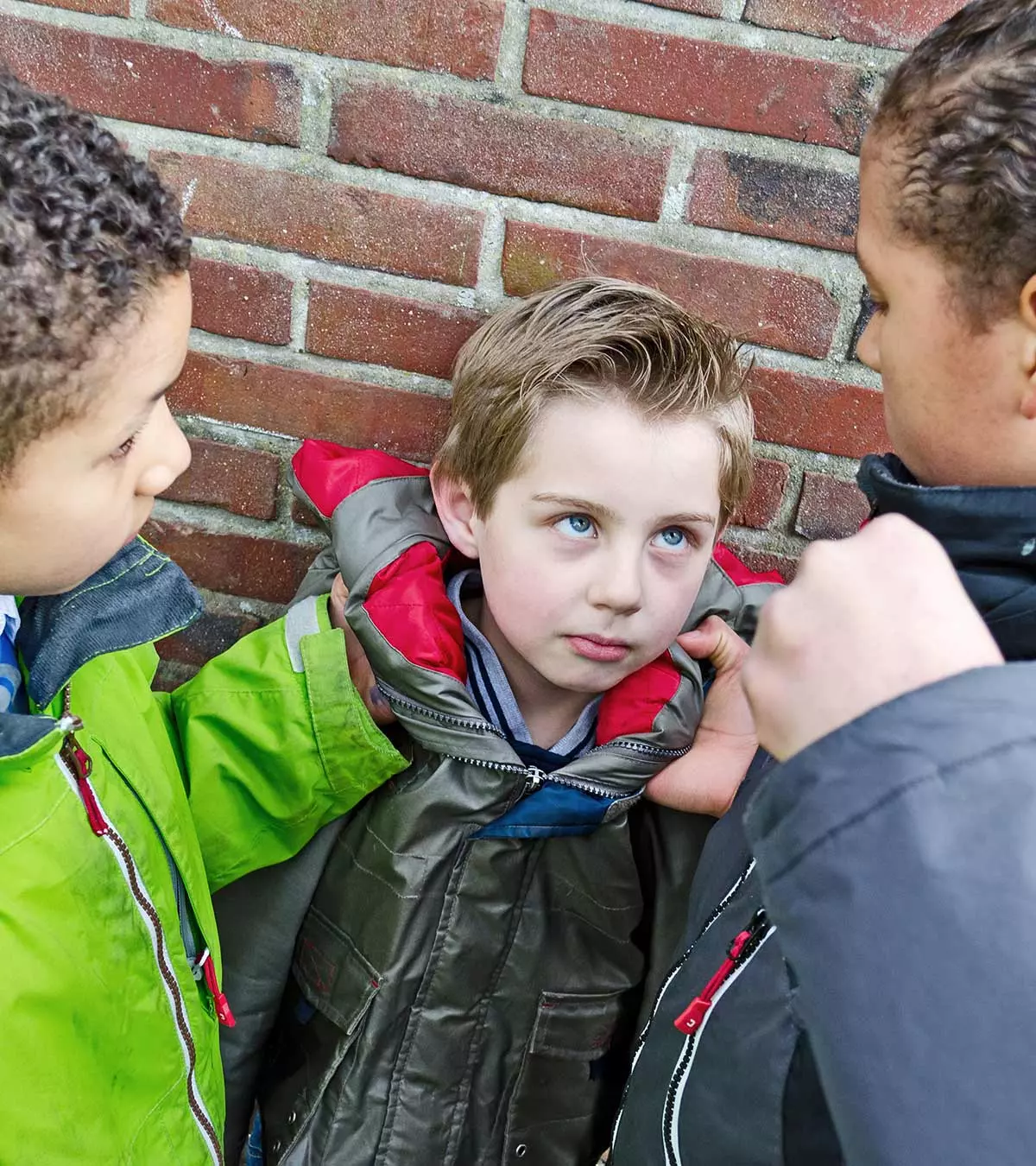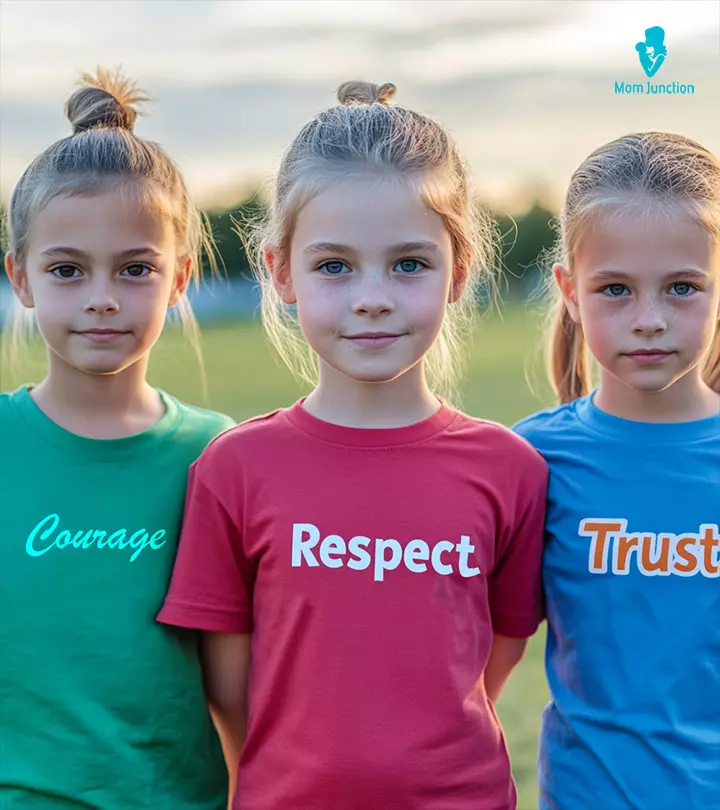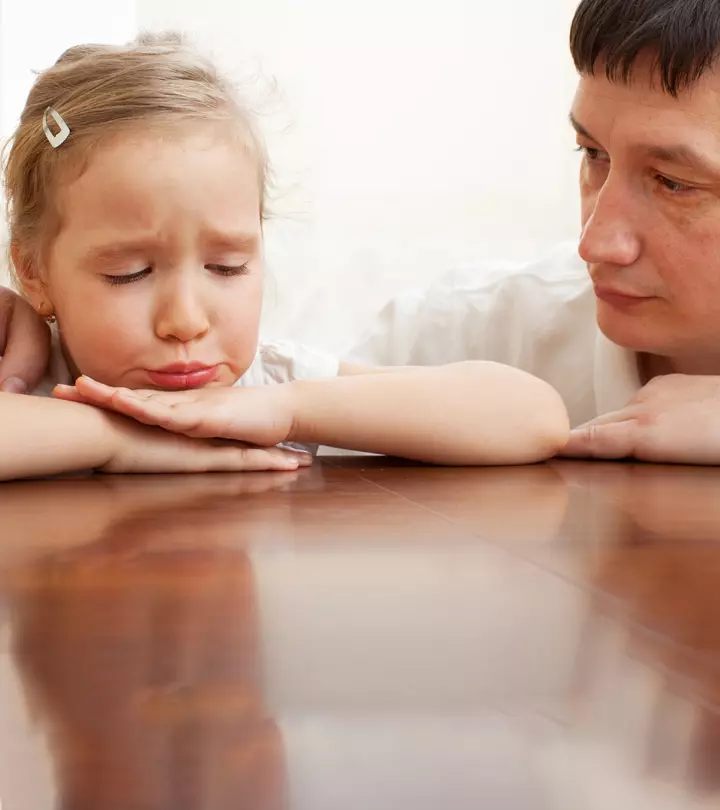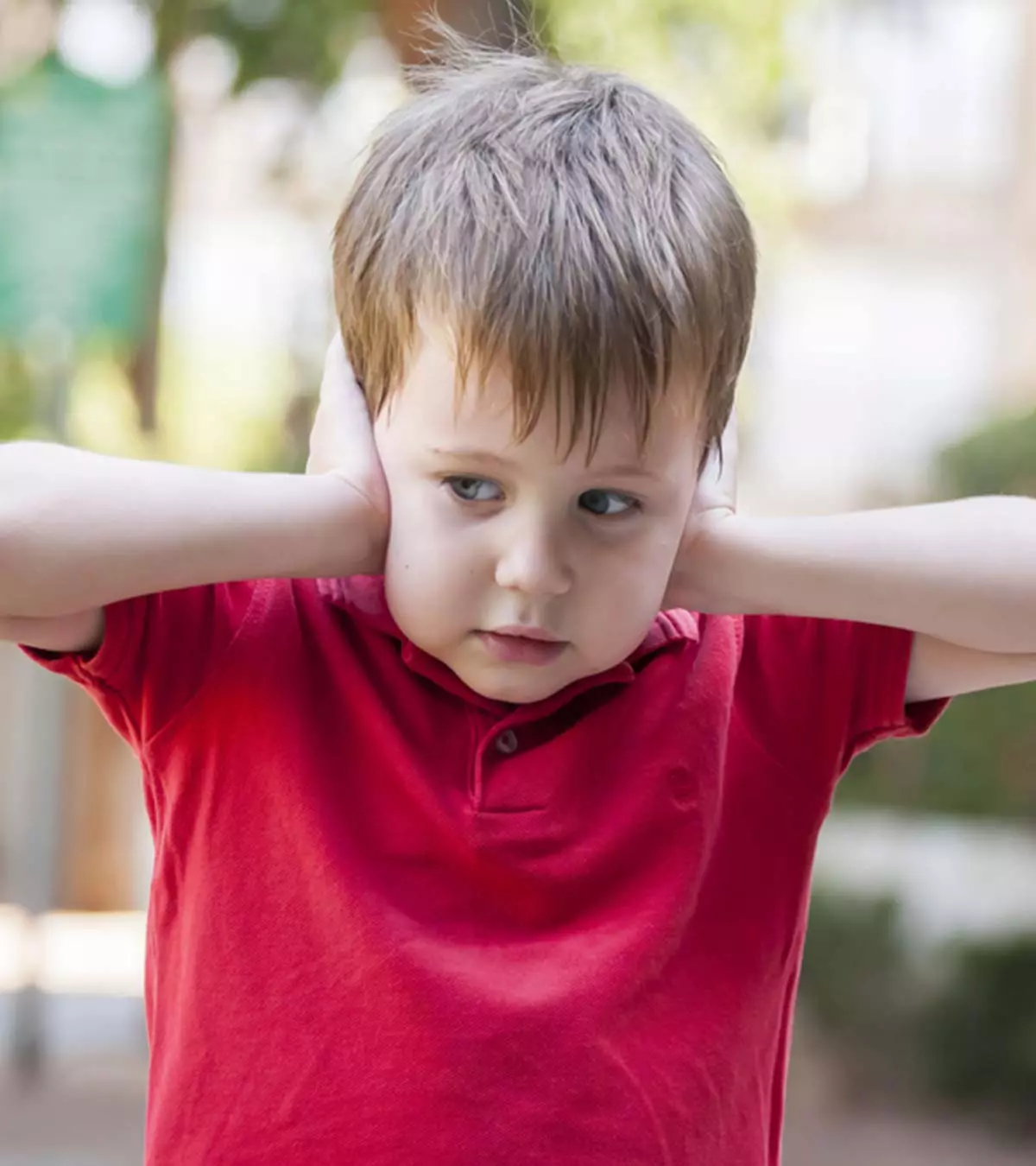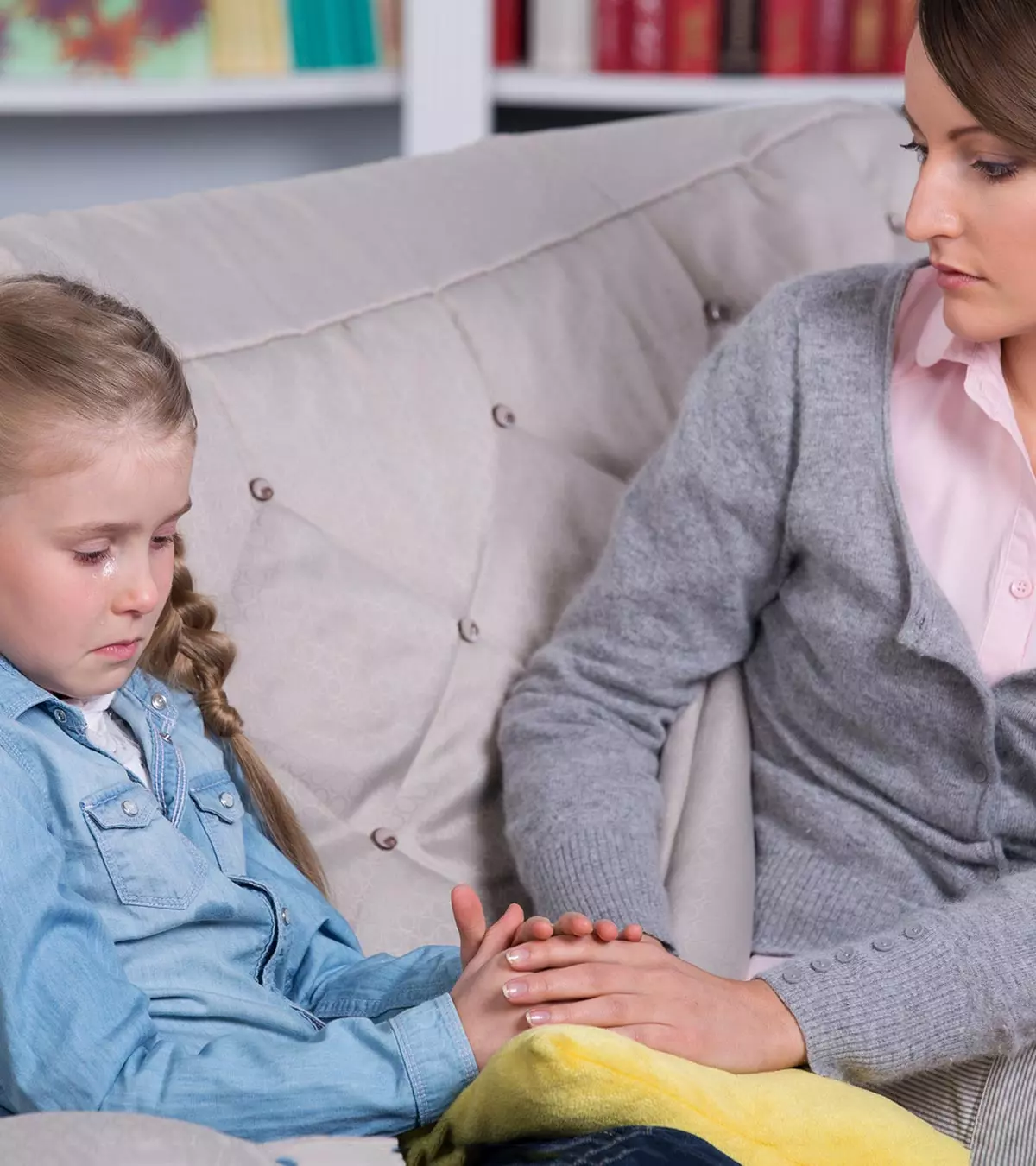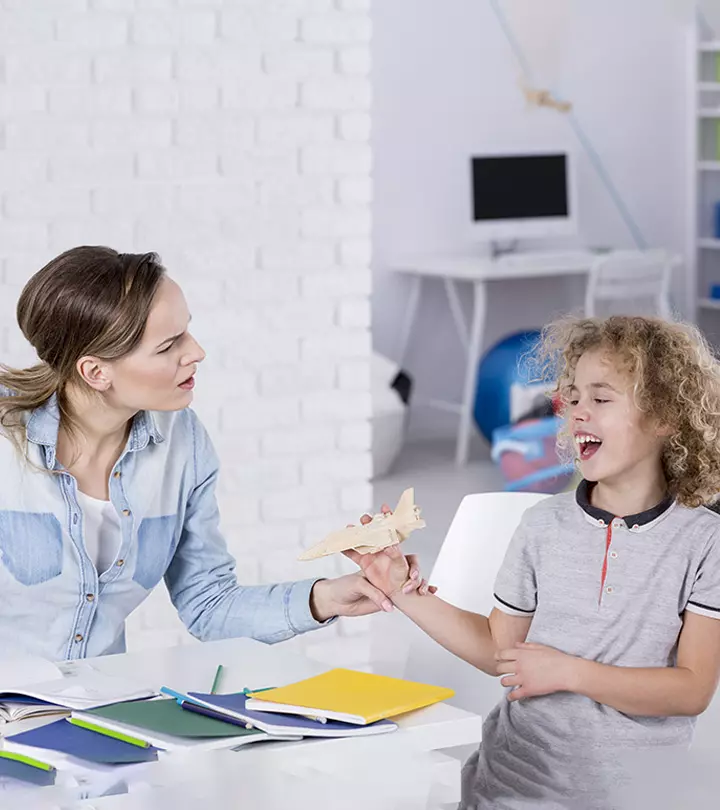
Image: ShutterStock
Inculcating positive behavior in children has to be one of the most important tasks that parents have to perform. Making sure that you teach them positive behavioral traits and helping them become respectable citizens in society is every parent’s bounden duty. Positive behavior leads to healthier interactions and helps children build better relationships. As a parent, you should understand the developmental stages of children as their behavior evolves. So how do you do it? Plunge into this post as we have put together a list of positive behaviors that you should introduce your children to and some easy tips to help you do so.

Key Pointers
- Positive behaviors foster responsibility, harmony, realism, confidence, and discipline in children.
- Parents can promote positive behaviors by being role models and keeping promises.
- Non-judgmental listening, polite restrictions, clear yes/no ground rules, guidance, and avoiding labels can encourage positive behavior.
- Parents’ behaviors can impact their children’s trust, emotional expression, decision-making, and other psychological attributes.
Common Behavioural Issues In Children
As children grow, they often experiment with different things and explore their limits. While some behavioral issues may signal deeper concerns, many could be a natural part of growing up. Below are some common behavioral issues in children (1) (2) (3).
- Gets easily angered or irritated easily
- Throws temper tantrums and argues with adults
- Refuses to comply with adults’ rules or requests
- Tries to annoy or aggravate others
- Blames others for misfortunes or misdeeds
- Shows extreme fussiness, such as refusing to eat certain foods
- Displays aggression, including hitting and kicking, toward people or animals
- Purposely damages others’ property
7 Effective Ways To Promote Positive Behaviors In Children
To make sure children grow up to be good adults, encouraging positive behavior in children is essential for parents. Consistency, alertness, and the following measures are necessary, but above all, as a parent, you must be ready and equipped to go on this journey.
1. Be a role model

Children tend to learn by observing. Hence, if you want your children to portray positive behavior, ensure you follow it too (4).
- While it is hard to always be perfect, remember that your children are always looking up to you.. Use positive words of encouragement for kids when around them and show kindness and acknowledge your child’s feelings.
- Try to deal with your own problems with patience and perseverance. Demonstrating effective self-control will help your child build on that harmonious, realistic, positive aura you display in the house and grow into being a similar individual.
2. Pay heed
Listen to your children without interrupting, and without any judgment. Listening is a powerful tool that makes your child feel that they are part of the game (5).
- The inability to express their emotions can be difficult for children and may result in some unintentional behaviors.
- As per a study published in the British Journal of Developmental Psychology, adolescents reluctant to express emotions often had parents who were less supportive or validating of their emotional expressions (6). By being there for your child and giving them your attention, you help them conquer apprehension, anxiety, and confidence issues. So, refrain from dismissing their fears or interrupting them when they are talking.
- Listening to their problems with generosity and optimism will help them be more open and close with you.
3. Keep your word

Keeping up with one’s promises shows integrity and helps build respect. As per a study published in the Journal of Experimental Child Psychology, children keep their own promises and also expect others to keep theirs. If someone breaks a promise, children show signs of disappointment or protest (7). So,
- If you have committed a trip to the zoo in lieu of completing homework for the week, stick to your word. This way, they learn the discipline of commitments and, at the same time, trust you for what you say.
4. Be cautious
Go an extra mile with your belongings if you do not want children to reach them.
- After all, they are kids and finding anything to play with is the only thing they know of, at this age.
- Hence, keep the valuables away from their sight.
- Be polite while posing the restriction on them. Explaining the condition may help them understand it better.
Ariadne Brill, a mom and blogger, shares how she handles her children’s misbehaviors. She writes, “Sometimes there were consequences, but not made-up ones—only ones that were directly related to what had happened. Washing up the soap or gluing together a broken vase for example. This wasn’t even presented as a consequence but as an opportunity to make amends or fix a mistake (i).”
5. Learn to say ‘no’

It is very difficult to say ‘no’, but even more difficult to change stubborn behavior (8).
- You do not have to agree with everything. Doing so, you will give them wrong signals.
- When you say no to them, your child knows that it’s important to respect your say and follow ground rules.
- Remember to say ‘no’ with politeness and respect so that your child does not feel unimportant or disrespected.
 Caution
Caution6. Avoid preaching
Stop teaching your children what to do. Leave it up to them and you’ll be surprised with what your children can do (10).
- Sometimes, over-preaching will have the opposite effects! It is better to guide, not instruct.
- That’s how they learn to make their own decisions, be responsible for their own actions and become independent.
7. Do not tag them

Tagging your kids as naughty or less intelligent or with other labels builds up negative emotions. You are not encouraging them to do better; instead, you are affecting their self-confidence and self-esteem (11).
- If you want them to study, share its benefits with them. Without pressurizing, convey gently what you expect from them and why.
- Boosting their self esteem will bring out the best behavior in them and help improve their self-awareness.
 Quick tip
Quick tipFrequently Asked Questions
1. What are some examples of positive behaviors?
Positive behaviors in children include an array of simple tasks that are generous, kind acts that enable them to work efficiently towards their and others’ well-being. These behaviors include cleaning up after themselves, volunteering in community programs, obeying the rules of a place, and respecting others’ choices. Understanding their responsibilities and keeping up to their promises could also be considered positive behaviors.
2. What is the importance of positive behavior?
Engaging in positive behaviors could help a child improve their quality of life. For instance, practicing empathy, humility, generosity, and kindness can help children maintain strong and healthy relationships with others. On the other hand, adhering to self-discipline can help them keep things organized around the house and become better individuals.
3. How can parents effectively use positive reinforcement?
You can do so by consistently recognizing good behavior, setting clear expectations, and ensuring the reward aligns with the behavior. Use words of praise and tangible rewards to encourage desired actions, and ensure you are consistent in your approach.
4. How does positive reinforcement impact a child’s behavior?
Positive reinforcement for kids helps them understand the importance of good behavior and boost their self-esteem and confidence. It can also encourage them to keep up that behavior, knowing that it results in positive consequences, thus helping them maintain consistency.
5. How can parents help their children build strong social skills and positive relationships with others?
Regular interactive communication and activities with children can aid their social development. By spending time with children, talking to them while also listening and acknowledging their input, playing with them, and interacting with them, parents can help build strong social skills in their little ones (13).
6. How can schools promote positive behavior in children?
Schools can help mold children’s behavior by actively supervising and engaging the children’s families in the process. In addition, the school can provide safe and flexible spaces like reading corners, seat children with their peers who model appropriate behavior, supervise actively, and provide rewards for and acknowledge positive behavior (14).
Being a role model of positive behavior for your children will help them imbibe the qualities more effectively. It is important to teach children the importance of positive behavior, such as honesty, sharing, caring, and forgiveness, to help them develop these behaviors as they grow up. Try applying these seven ways to promote positive behavior in children and support their social skills development. However, remember that these habits cannot be developed in a day. Patience and perseverance are essential to encourage your child and keep them motivated throughout the process.
Infographic: What To Avoid While Teaching Positive Behavior To Children
Teaching positive behaviors to children is important to help them develop healthy habits, build good character, and become responsible. However, certain things should be avoided while teaching positive behaviors to children. These can hinder the child’s development and prevent them from learning and adopting positive behaviors. Explore the infographic to know the things to avoid.
Some thing wrong with infographic shortcode. please verify shortcode syntax
Illustration: Effective Ways To Promote Positive Behavior In Children
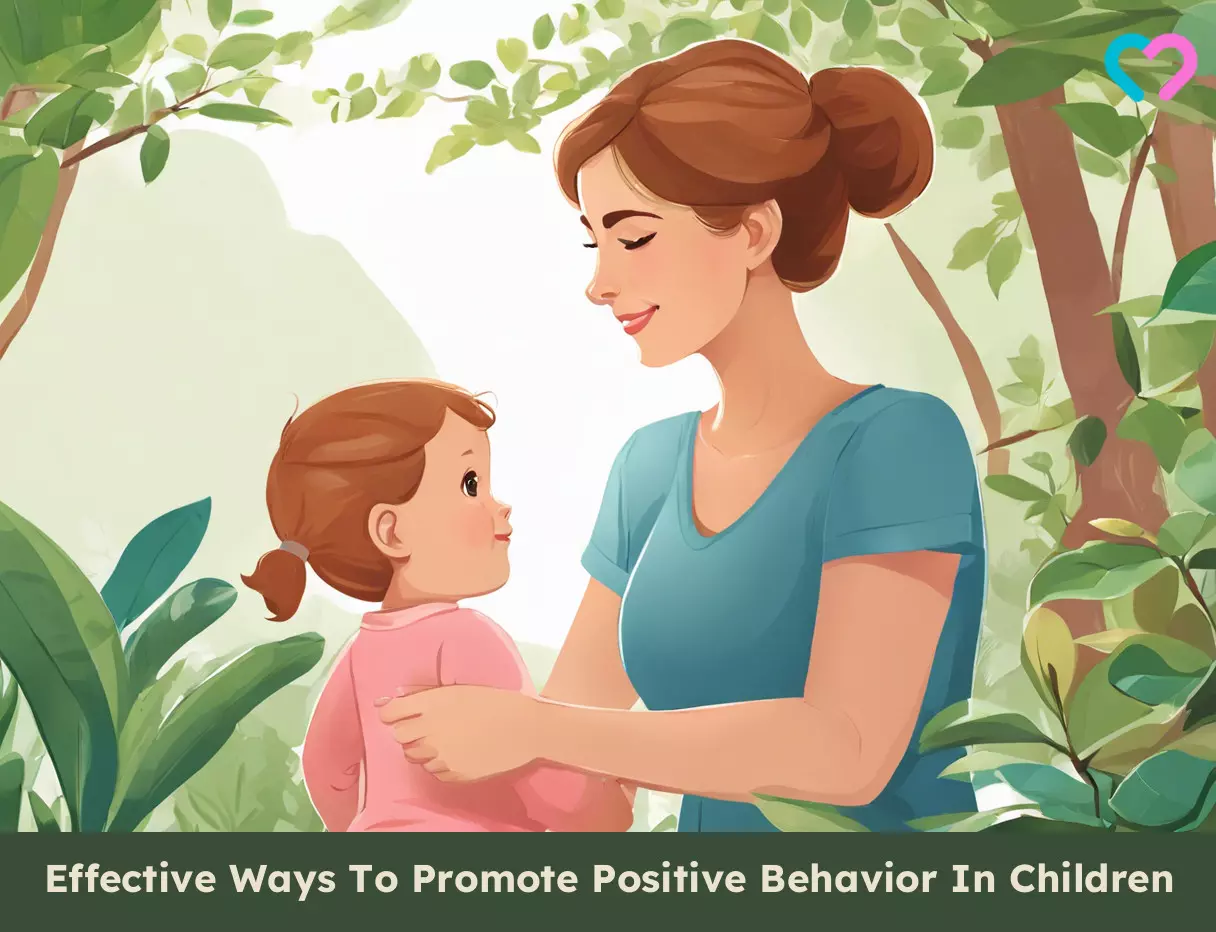
Image: Stable Diffusion/MomJunction Design Team
Ascertain the potential of positive guidance in fostering children’s healthy behaviors and attitudes. Unveil the transformative power of positive reinforcement, shaping a child’s future for the better.
Personal Experience: Source
MomJunction articles include first-hand experiences to provide you with better insights through real-life narratives. Here are the sources of personal accounts referenced in this article.
i. How to correct your child’s ‘bad’ behaviour with positive parenting;
https://positiveparentingconnection.net/want-to-correct-your-childs-bad-behaviour-with-positive-parenting-try-this/
References
- Behavioural disorders in children
https://www.betterhealth.vic.gov.au/health/healthyliving/behavioural-disorders-in-children - Behavior or Conduct Problems in Children
https://www.cdc.gov/children-mental-health/about/about-behavior-or-conduct-problems-in-children.html - Challenging behaviour – school-aged children
https://www.rch.org.au/kidsinfo/fact_sheets/Challenging_behaviour_school_aged_children/ - Being a role model.
https://centerforparentingeducation.org/library-of-articles/focus-parents/role-model-promise-peril/ - The skill of active listening.
https://centerforparentingeducation.org/library-of-articles/healthy-communication/the-skill-of-listening/ - Brandon Scott et al.; (2017); Reluctance to express emotion explains relation between cognitive distortions and social competence in anxious children
https://www.researchgate.net/publication/321770713_Reluctance_to_express_emotion_explains_relation_between_cognitive_distortions_and_social_competence_in_anxious_children - Patricia Kanngiesser et al.; (2017);Young children mostly keep, and expect others to keep, their promises
https://www.sciencedirect.com/science/article/abs/pii/S0022096517300802 - How to discipline your child the smart and healthy way
https://www.unicef.org/parenting/child-care/how-discipline-your-child-smart-and-healthy-way - How to Teach Good Behavior: Tips for Parents
https://www.aafp.org/pubs/afp/issues/2002/1015/p1463.html - Teach Your Kids How to Make Their Own Decisions
https://ptaourchildren.org/teach-kids-decision-making-skills/#:~:text=The%20power%20of%20empowerment - Avoid labeling your child
https://extension.unr.edu/publication.aspx?PubID=3011 - Encouraging positive behaviour: tips
https://raisingchildren.net.au/toddlers/behaviour/encouraging-good-behaviour/good-behaviour-tips - Relationships and child development
https://raisingchildren.net.au/newborns/development/understanding-development/relationships-development - Positive behavior strategies: A guide for teachers
https://www.understood.org/en/articles/what-are-positive-behavior-strategies
Community Experiences
Join the conversation and become a part of our nurturing community! Share your stories, experiences, and insights to connect with fellow parents.
Read full bio of Dr. Holly Schiff
Read full bio of Harshita Makvana
Read full bio of Swati Patwal
Read full bio of Apoorva K





